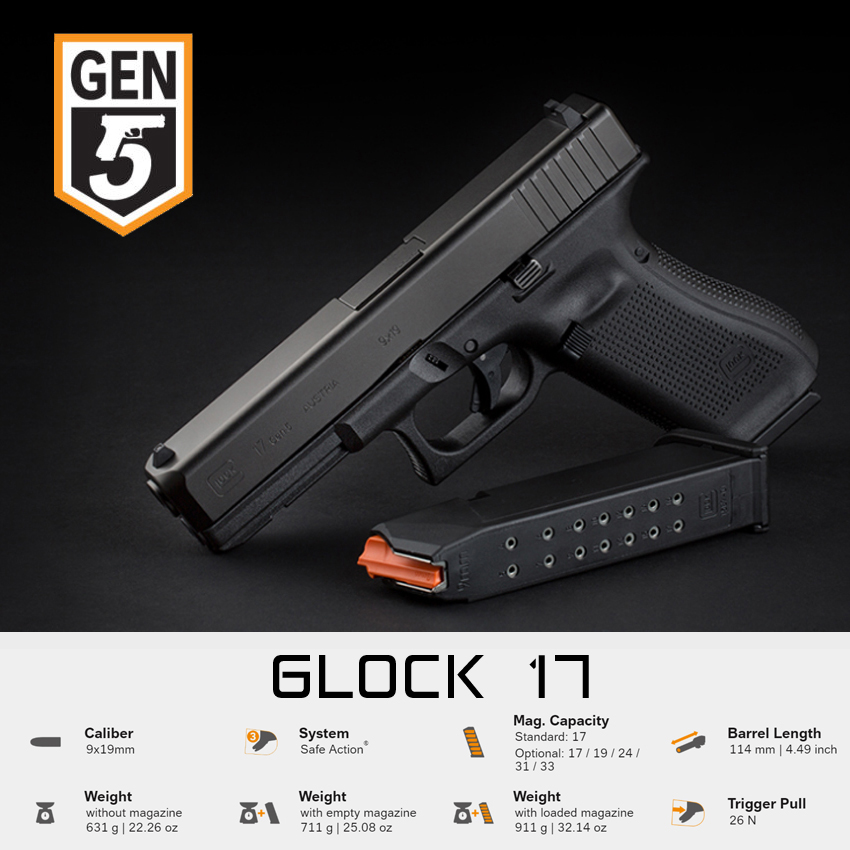PROCEDURES RELATED TO GLOCK PISTOLS ORDERS
To define the standard procedure for processing orders of Glock pistols in compliance with Glock’s policies and applicable international export and arms-trade regulations.
1. Request & Quotation
- The prospective Buyer submits a formal Request for Quotation (RFQ) specifying the model(s), quantities, and any special requirements.
- Upon receipt of a complete RFQ, we prepare and issue an official written offer to the Buyer.
2. Order Acceptance & Confirmation
- The Buyer formally accepts the official offer in writing.
- We issue an Order Confirmation to the Buyer acknowledging the accepted offer details.
- The Buyer returns a written confirmation of acceptance of the Order Confirmation.
3. Compliance Documentation
- The Buyer completes and submits all mandatory compliance documents required by Glock, including the designated Questionnaire and Anti-Bribery & Anti-Corruption declarations (SEE THE FORMS).
- A formal contract is executed between the Buyer and our company, incorporating the offer, order confirmation, and all required compliance clauses.
4. Licencing & End-User Documentation
- Prior to export, the Buyer provides the required End-User Certificate (EUC) and/or import license, or any other documentation specified by Glock or by relevant export/import authorities.
5. Payment Terms
- The Buyer pays a down payment of 50% of the total order value upon issuance of the applicable pro-forma invoice. This payment secures the booking and initiates the licensing/documentation process.
- If an export license application is unsuccessful and export is prohibited, the down payment will be refunded in accordance with the terms of the contract (subject to any mutually agreed deductions explicitly stated in the contract).
6. Production, Export License & Final Payment
- If the ordered items are not available from stock, production will commence following receipt of the down payment and required documentation.
- We (or Glock, as applicable) submit the application for the export license.
- Once the export license is issued and the products are ready for shipment, the Buyer settles the remaining balance in full, including any agreed transportation and insurance costs, prior to release for shipment.
7. Shipping Documentation & Invoicing
- Upon payment of the final balance and completion of export formalities, Glock issues applicable export documentation such as the OEM Certificate, Packing List, and Air Waybill (AWB) (or other transport documents as appropriate).
- Our company issues the final commercial invoice to the Buyer.
8. Delivery & Export
- Goods are exported and transported to the destination specified by the Buyer in compliance with the export license and all applicable legal requirements. Title, risk, and delivery Incoterms shall be as defined in the contract.
Additional Terms
Compliance: All parties must comply with Glock’s corporate policies and the laws and regulations of relevant jurisdictions (export control, customs, arms-trade regulations, anti-corruption laws, etc.).
Confidentiality: All commercial and technical information exchanged during the process shall remain confidential except as required by law or by the competent authorities.
Amendments & Cancellation: Any changes to the order, cancellation, or delay must be made in writing and will be handled according to the contract’s terms (including any costs incurred).
Dispute Resolution: Disputes arising from this procedure will be resolved in accordance with the dispute-resolution clause of the contract.
WE SUPPLY GLOCK PRODUCTS
- Glock Pistols are shipped in cardboard boxes (55X32X26cm each box) on EUR-pallets (1200x800 mm).
- Each cardboard box contains 10 pistols each in a separate polymer case.
- A maximum of 20 cardboard boxes, each filled with 10 pistol cases, can be placed onto one EUR pallet.
- The net weight of each pistol: 1.48kg
- The gross weight of each pistol: 1.55kg
- The weight of a fully loaded palette is about 315-320kg

In a strategic expansion of its global operations, our company officially supplies Glock products to multiple countries.
This reinforces the company's commitment to providing high-quality, reliable defence and security solutions worldwide.
Subject to no Sanctions by the USA and the European Union we supply Glock products to;






